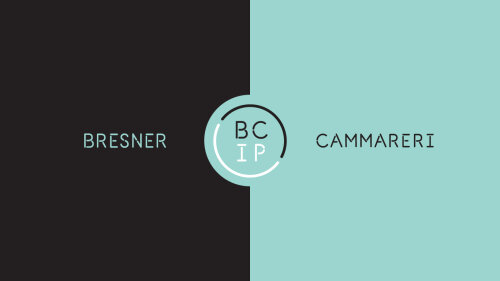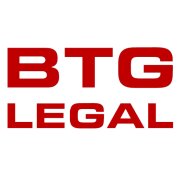Best E-commerce & Internet Law Lawyers in Italy
Share your needs with us, get contacted by law firms.
Free. Takes 2 min.
Or refine your search by selecting a city:
List of the best lawyers in Italy
About E-commerce & Internet Law in Italy
E-commerce and Internet Law in Italy are dynamic legal fields that govern the activities conducted over the internet, especially with respect to business transactions, consumer protection, privacy, intellectual property, and electronic contracts. As one of the key markets in Europe for digital commerce, Italy places significant importance on regulating the online ecosystem to ensure fairness, transparency, and security for both businesses and consumers engaging in online trade.
Why You May Need a Lawyer
Many situations might necessitate seeking legal assistance in E-commerce & Internet Law, including:
- Starting an online business and needing to understand compliance with Italian regulations.
- Handling disputes related to online transactions or digital contracts.
- Ensuring the protection of intellectual property rights in the digital realm.
- Addressing privacy concerns or data protection regulations such as GDPR compliance.
- Defending or enforcing your business’s rights in online marketplaces.
- Drafting terms of service, privacy policies, and other essential legal documents for an online platform.
Local Laws Overview
Several key aspects of local laws are relevant to E-commerce & Internet Law in Italy:
- Consumer Protection: The Italian Consumer Code implements EU directives to protect consumers, particularly regarding online sales terms, warranties, and returns.
- Data Privacy: Italy enforces the EU’s General Data Protection Regulation (GDPR), which requires businesses to protect user data and maintain transparent privacy policies.
- Electronic Contracts: The Italian legal framework supports the validity of electronic contracts, which must meet specific criteria for transparency and consumer information.
- Intellectual Property Rights: Italian laws protect digital content and require businesses to respect copyrights, trademarks, and patents in an online environment.
- Taxation of Digital Services: E-commerce activities are subject to specific tax regulations, including VAT obligations on digital goods and services.
Frequently Asked Questions
What are the main legal requirements for starting an e-commerce business in Italy?
You need to register your business with the Italian Business Register, obtain a VAT number, and comply with consumer protection laws. Additionally, your website must adhere to privacy regulations and display clear terms of service.
How does GDPR affect e-commerce businesses in Italy?
GDPR requires businesses to implement strict data protection measures, provide clear privacy notices, obtain consent for data processing, and allow users to manage their personal data.
What constitutes a valid electronic contract in Italy?
Valid electronic contracts in Italy must contain clear terms, provide full disclosure to consumers, and include mechanisms for consumers to give informed consent, often through a confirmation process like clicking an acceptance button.
What are my rights as a consumer making an online purchase?
Consumers in Italy have rights to information about goods and services, a cooling-off period for cancelling purchases, refund rights, and protection against unfair commercial practices.
How are disputes in e-commerce typically resolved?
Disputes may be resolved through traditional litigation, arbitration, or mediation, with many online platforms offering dedicated dispute resolution mechanisms.
What should be included in a website's terms and conditions?
Terms should cover user rights and responsibilities, payment terms, data protection practices, liability limitations, and dispute resolution processes.
How do I protect my intellectual property online?
Register your trademarks, copyrights, and patents where applicable, utilize digital rights management technologies, and clearly communicate your rights on your website.
Are there any specific e-commerce taxes in Italy?
E-commerce activities are subject to VAT and potentially other digital taxes, depending on the nature of the goods or services and the customer’s location.
What actions should I take if my online data has been breached?
Notify the Italian Data Protection Authority, inform affected users, investigate the breach cause, and implement remedial measures to prevent future incidents.
How can I ensure compliance with e-commerce laws and regulations?
Regularly consult with legal experts, update your policies according to legal changes, conduct compliance audits, and educate your staff on regulatory requirements.
Additional Resources
Consider referring to these resources for additional support:
- Italian Ministry of Economic Development: Offers guidelines and support for digital businesses.
- Garante per la Protezione dei Dati Personali: The Italian Data Protection Authority’s website provides insights into data privacy laws.
- European Consumer Centre Italy: Offers advice on consumer rights and dispute resolution in the EU.
- Local Chambers of Commerce: Provide resources and support for e-commerce entrepreneurs.
- Professional Legal Associations: Can help connect you with specialized lawyers in the field.
Next Steps
If you require legal assistance in E-commerce & Internet Law in Italy, consider these steps:
- Identify Your Needs: Clearly define the legal issue or area you seek advice on, whether it's compliance, dispute resolution, intellectual property, etc.
- Research Experienced Lawyers: Look for attorneys or law firms specialized in E-commerce & Internet Law with a proven track record and strong client testimonials.
- Schedule a Consultation: Arrange for an initial meeting to discuss your legal concerns and explore potential solutions.
- Prepare Your Documents: Gather all relevant documents and information that may be necessary for legal assessment and advice.
- Consider Ongoing Legal Support: Depending on your business needs, you may benefit from establishing a long-term relationship with a legal advisor.
Lawzana helps you find the best lawyers and law firms in Italy through a curated and pre-screened list of qualified legal professionals. Our platform offers rankings and detailed profiles of attorneys and law firms, allowing you to compare based on practice areas, including E-commerce & Internet Law, experience, and client feedback.
Each profile includes a description of the firm's areas of practice, client reviews, team members and partners, year of establishment, spoken languages, office locations, contact information, social media presence, and any published articles or resources. Most firms on our platform speak English and are experienced in both local and international legal matters.
Get a quote from top-rated law firms in Italy — quickly, securely, and without unnecessary hassle.
Disclaimer:
The information provided on this page is for general informational purposes only and does not constitute legal advice. While we strive to ensure the accuracy and relevance of the content, legal information may change over time, and interpretations of the law can vary. You should always consult with a qualified legal professional for advice specific to your situation.
We disclaim all liability for actions taken or not taken based on the content of this page. If you believe any information is incorrect or outdated, please contact us, and we will review and update it where appropriate.
Browse e-commerce & internet law law firms by city in Italy
Refine your search by selecting a city.
















